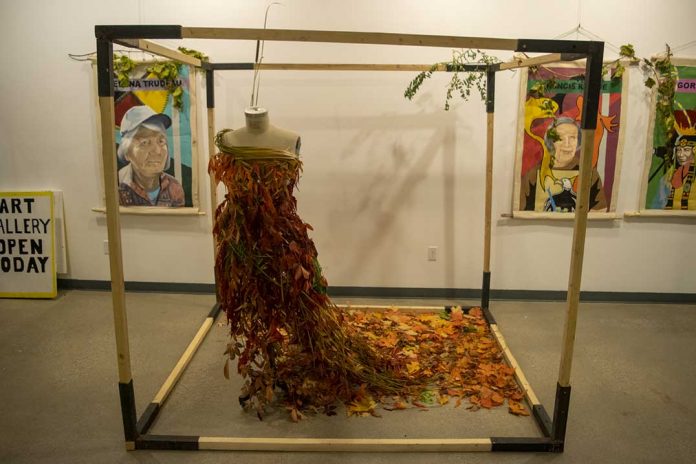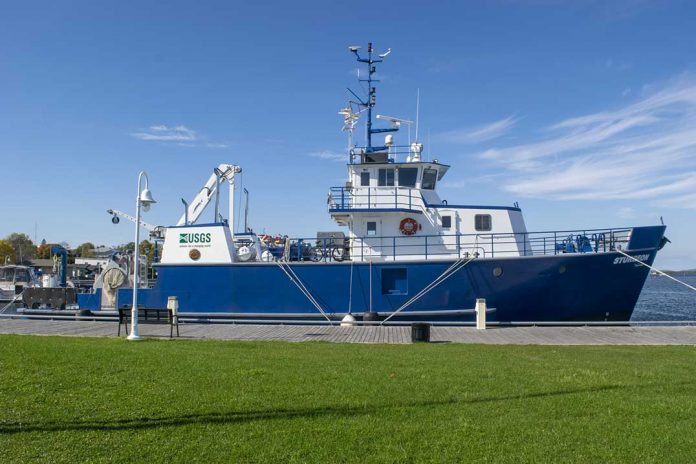EDITOR’S NOTE: The following story contains information about sexual abuse that took place in Wiikwemkoong during the mid-to-late 20th century. This information may be disturbing to those who have suffered from sexual abuse. Support is available 24/7 through the First Nations and Inuit Hope for Wellness Help Line at 1-855-242-3310 or the Manitoulin Family Resources crisis line at 1-800-465-6788.
NORTHWESTERN ONTARIO – The survivor stories of Father George Epoch’s victims reveal an interesting pattern: knowledge of the wrongdoings that some members of the faith community held, and the subsequent actions taken to try to hide the extent of the abuse.
The Manitoulin Expositor reached out to an alleged victim of Father Epoch. The individual (who is not of Indigenous heritage, unlike so many of the priest’s victims) has never formally lodged any complaints about what they experienced and has never gotten involved in any lawsuits—nor do they have any desire to do so. This is the first time they have ever shared their story in any public manner.
The Expositor has granted them anonymity due to the sensitivity of the topic and the dynamics of the alleged victim’s small community. As such, they will be referred to with gender-neutral pronouns throughout this story.
The individual grew up in a small town that fell within the region of the Fort William (Thunder Bay) Diocese. Their former parish priest died in 1958 and was replaced by Jesuit Father Epoch. His arrival was, similar to many other places, seen as a Godsend.
“More than anything else, I am angry,” they told The Expositor. “We were just so damn naïve.”
The alleged victim described how Father Epoch recruited altar boys and increased their numbers, picking his ‘favourites’ through the process. Those ‘favourites’ were invited to have sleepovers with him when the rectory’s housekeeper was away, which was when they were allegedly abused.

One evening, this individual went to the rectory which was when they said the abuse took place. They said that the abuse went no further than Father Epoch placing his hand down the front of the alleged victim’s pants while they sat on the priest’s lap. They were around age 11 or 12 at the time.
This individual did not experience any further sexual contact with Father Epoch after that incident. They said they were unsure whether any of the other victims in their town experienced abuse that went beyond touching; as in many communities at the time, the church held a powerful position and discussions of any possible misconduct were often quashed.
“I know of an instance with another priest, there was a woman waiting for her husband to come off the railroad and she saw a 14- or 15-year-old girl leave the rectory,” said the alleged victim. “Someone has got to realize, even then, that 11- and 12-year-old children… it’s not normal to sleep at the priest’s house. But they could do no wrong (back then).”
The individual said they didn’t face any consequences for not being overly welcoming to the priest’s advances. “He wasn’t a mean man. There were no repercussions with respect to not being receptive. He didn’t have a mean streak,” they said.
Father Epoch was replaced in 1960 by another priest who delivered foreboding and intense sermons when he spoke with the individual’s Grade 8 class every Friday. This was a sharp contrast from Father Epoch’s kind outward approach and the children were not overly appreciative of the shift.
“(The new priest) was being teased about not being as nice as Father Epoch which led to his subsequent blow-up when he made his statement about us one day knowing about Father Epoch. It did not dawn on us at the time. But the statement is one of those things that will come to mind with certain stimuli,” said the alleged victim.
After Father Epoch left the town, one of the fill-in priests invited the alleged victim to go swimming with him at a nearby beach.
“I thought nothing of it at the time but later—years later—I realized that I was being interviewed by this man. He was assessing the damage done by Epoch. I am not sure whether it was damage to me or the diocese. My thoughts are not that the concern was with me,” they said.
This was an indication to the alleged victim that the administration of the religious order knew what was happening and simply moved offending priests around, rather than dealing with the problem fully.
“I’m sure he went back and told the bishop and reported his findings,” they said. “Whatever happened in Nova Scotia or Spanish (after these alleged abuses), that just blows me away.”
The bitterness over what the individual described as a dismissive administrative mindset still lingers today.
“I’m angry that this pedophile wasn’t stopped before he abused all of those children after he left (my town) in 1960. My anger is directed mostly at Bishop E.Q. Jennings,” the individual told The Expositor. “The bishop, his underlings and consultants knew about Epoch’s predilection and did next to nothing about it. Epoch’s only punishment was to be banned from the Fort William Diocese. In other words, he was allowed to continue his abasement of children in other places.”
The individual’s devout mother permitted her son (this individual’s brother) to go by train and visit Father Epoch at the Spanish Residential School. However, they said that the rest of the story belongs to their brother, who has since passed, and declined to speak further on the matter.
The alleged victim is no longer a practicing Catholic and said they do not believe in God, adding that they would be surprised if the ministers of a church that allowed such things to happen would expect to ever make it to heaven themselves.
“Even a sick mind cannot justify those actions or think that there will be divine forgiveness,” they said.
•••
The Expositor will be following the new developments in this case as more information becomes available as well as sharing stories and past records that bring context to the crimes of Father George Epoch, Brother Norman Hinton and Brother O’Meare from their time in Wiikwemkoong.





